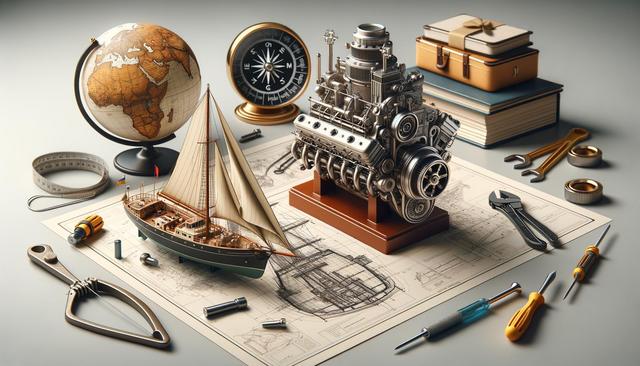The Importance of Accreditation in Marine Engineering
Choosing an accredited marine engineering program is a crucial step for aspiring professionals aiming to enter this specialized and demanding field. Accreditation ensures that a program meets defined academic and industry standards, which is essential for both educational quality and career prospects. Recognized accrediting bodies evaluate institutions based on curriculum rigor, faculty qualifications, facilities, and outcomes such as graduate employability and licensure pass rates. For students, enrolling in an accredited program offers several benefits:
- Eligibility for licensure and professional certification
- Transferability of credits to other institutions
- Improved job opportunities and employer recognition
- Access to federal financial aid and scholarships
In the context of marine engineering, where safety, innovation, and regulatory compliance are paramount, accreditation validates that graduates are well-equipped to meet the demands of the maritime sector. It also reassures employers and licensing bodies that the education received aligns with industry expectations and technological advancements.
What to Expect from an Accredited Marine Engineering Program
Accredited marine engineering programs provide a comprehensive education that combines theoretical knowledge with hands-on training. The curriculum typically includes a mix of engineering fundamentals and marine-specific courses such as:
- Thermodynamics and fluid mechanics
- Naval architecture and ship design
- Marine propulsion systems
- Electrical and control systems onboard vessels
- Environmental regulations and maritime law
Students also engage in laboratory work and simulator-based training to develop practical skills in system diagnostics, maintenance, and safety procedures. Many programs incorporate internships or cooperative education experiences with shipping companies, shipyards, or offshore engineering firms. These opportunities allow students to apply their learning in real-world settings and gain valuable industry insights. Moreover, the use of simulation tools and digital technologies reflects the industry’s shift toward automation and sustainability, preparing graduates to contribute to innovative solutions in vessel design and marine operations.
Career Opportunities and Industry Demand
Graduates of accredited marine engineering programs are well-positioned to pursue diverse roles in the maritime and offshore industries. Their expertise is essential in designing, operating, and maintaining ships, submarines, offshore platforms, and renewable energy installations like wind farms. Common job titles include:
- Marine engineer or naval architect
- Ship systems engineer
- Offshore operations engineer
- Port and harbor engineer
- Marine surveyor
The global demand for marine engineers continues to grow due to the expansion of maritime trade, modernization of naval fleets, and development of sustainable marine technologies. Accredited programs align their curricula with these emerging trends, ensuring graduates possess the skills needed to work with hybrid propulsion systems, autonomous vessels, and environmentally compliant infrastructure.
Choosing the Right Program for Your Goals
When selecting a marine engineering program, prospective students should consider several factors beyond accreditation. These include program length, faculty experience, industry partnerships, and available facilities such as labs, simulators, and training vessels. Some programs also offer specializations in areas like underwater technology, offshore engineering, or maritime safety. Questions to guide the decision-making process might include:
- Does the program offer hands-on training and internships?
- What are the graduate employment rates and typical career paths?
- Are there opportunities for research or participation in engineering competitions?
- What kind of support services are available for students and alumni?
Visiting campuses, speaking with current students or alumni, and reviewing course descriptions can provide further insights into whether a program aligns with personal interests and long-term career aspirations. Additionally, look for programs that emphasize sustainability and innovation—two growing pillars in the marine engineering field.
Marine Engineering: Where Innovation Meets Adventure
Marine engineering is more than a technical discipline; it’s a career pathway that combines cutting-edge innovation with global exploration. Accredited programs prepare students not only to solve complex engineering problems but also to contribute to the future of maritime transportation, defense, and energy. As marine engineers, professionals may find themselves working aboard ships, at remote offshore sites, or in design offices shaping the next generation of vessels. The field offers a unique blend of intellectual challenge and real-world impact, making it an attractive choice for individuals with a passion for mechanics, the ocean, and sustainable development. With accredited training, graduates enter the workforce equipped to take on this multifaceted and rewarding profession.
Conclusion: Setting Sail on a Trusted Path
For those drawn to the sea and inspired by technological progress, accredited marine engineering programs provide a reliable foundation for a meaningful and adventurous career. These programs combine rigorous academics with practical experience, ensuring graduates are both competent and confident as they navigate the challenges of the maritime industry. By choosing an accredited path, students invest not only in their education but also in a future where their skills contribute to global innovation and safety at sea.




Leave a Reply